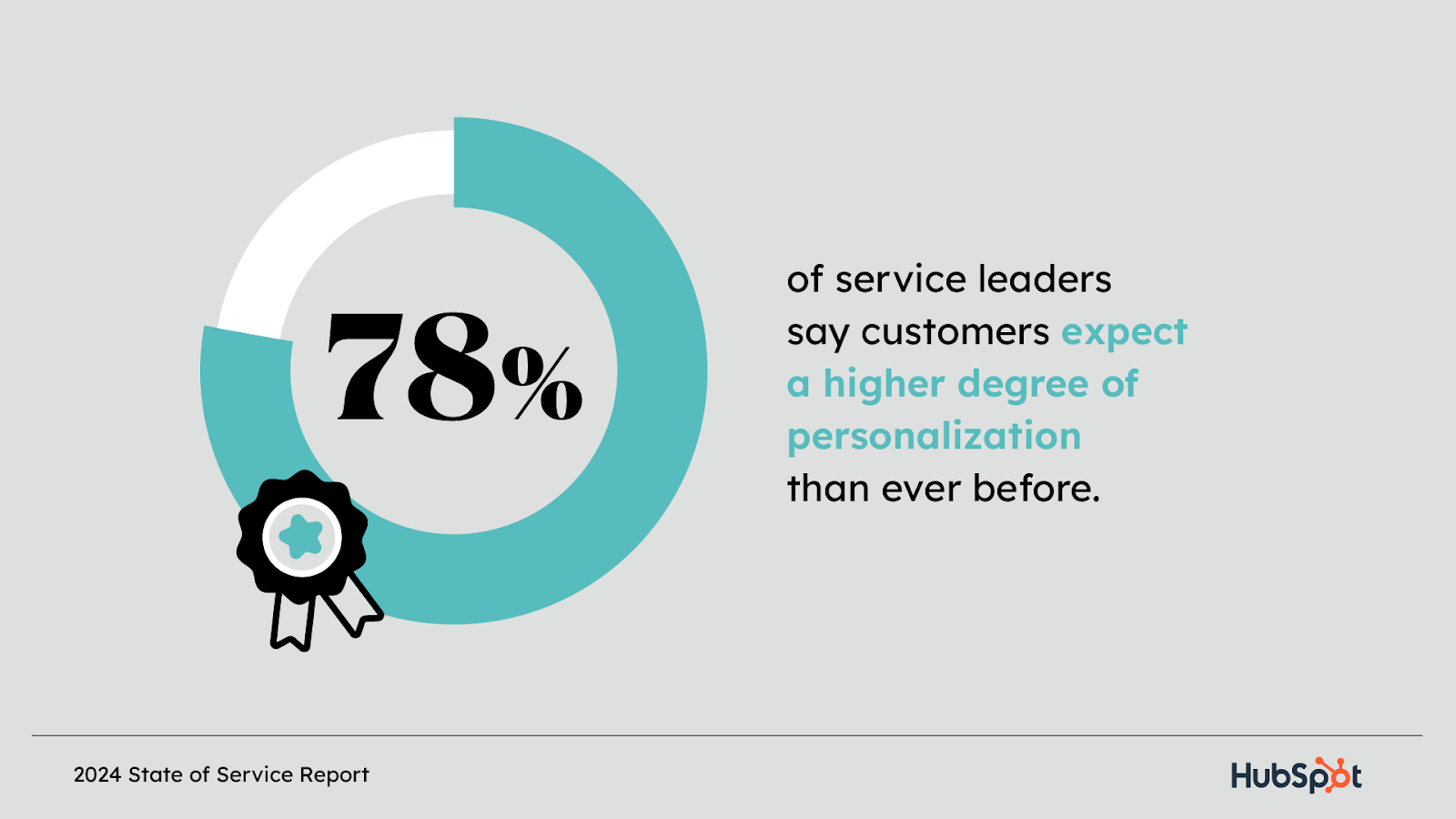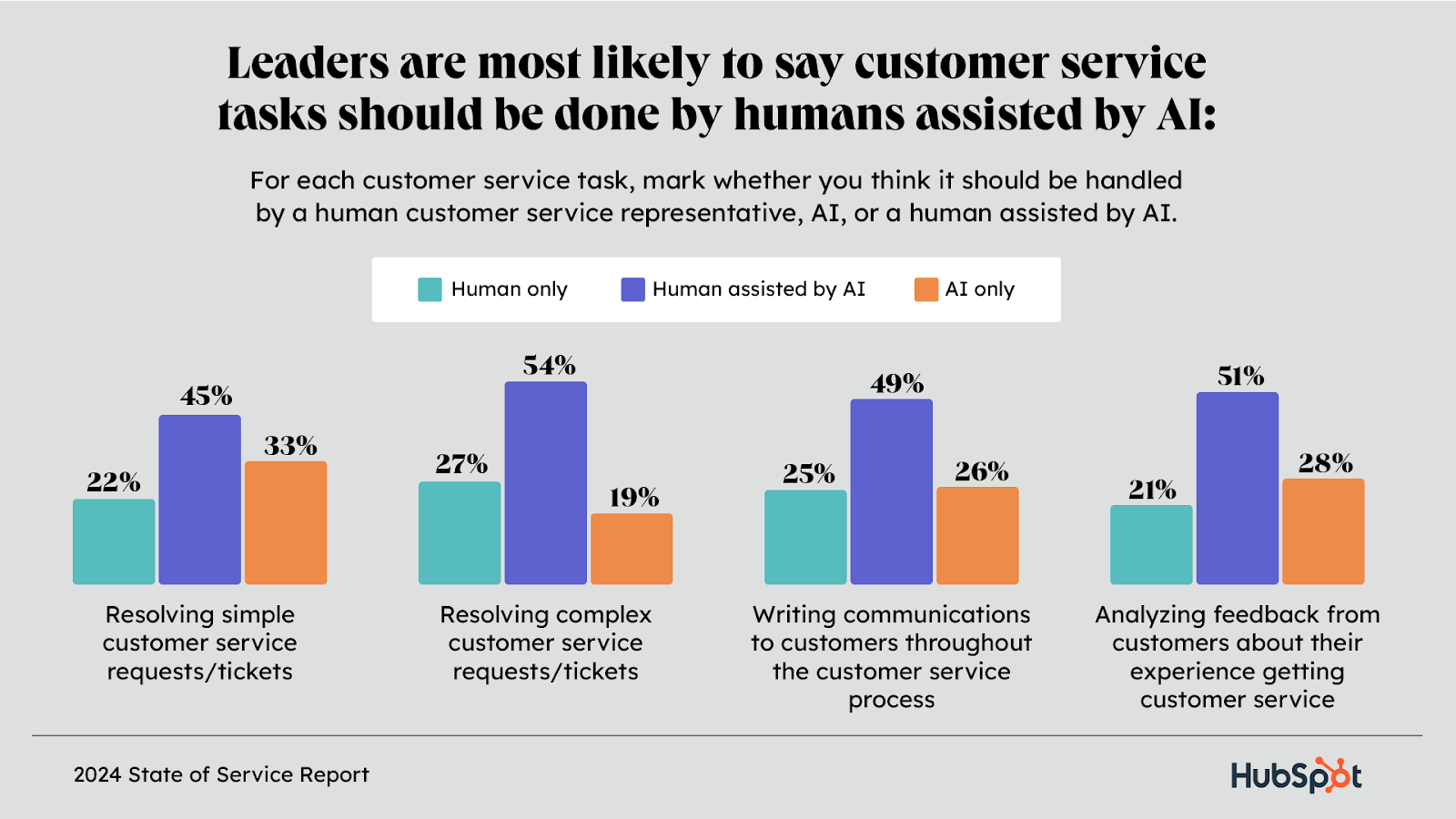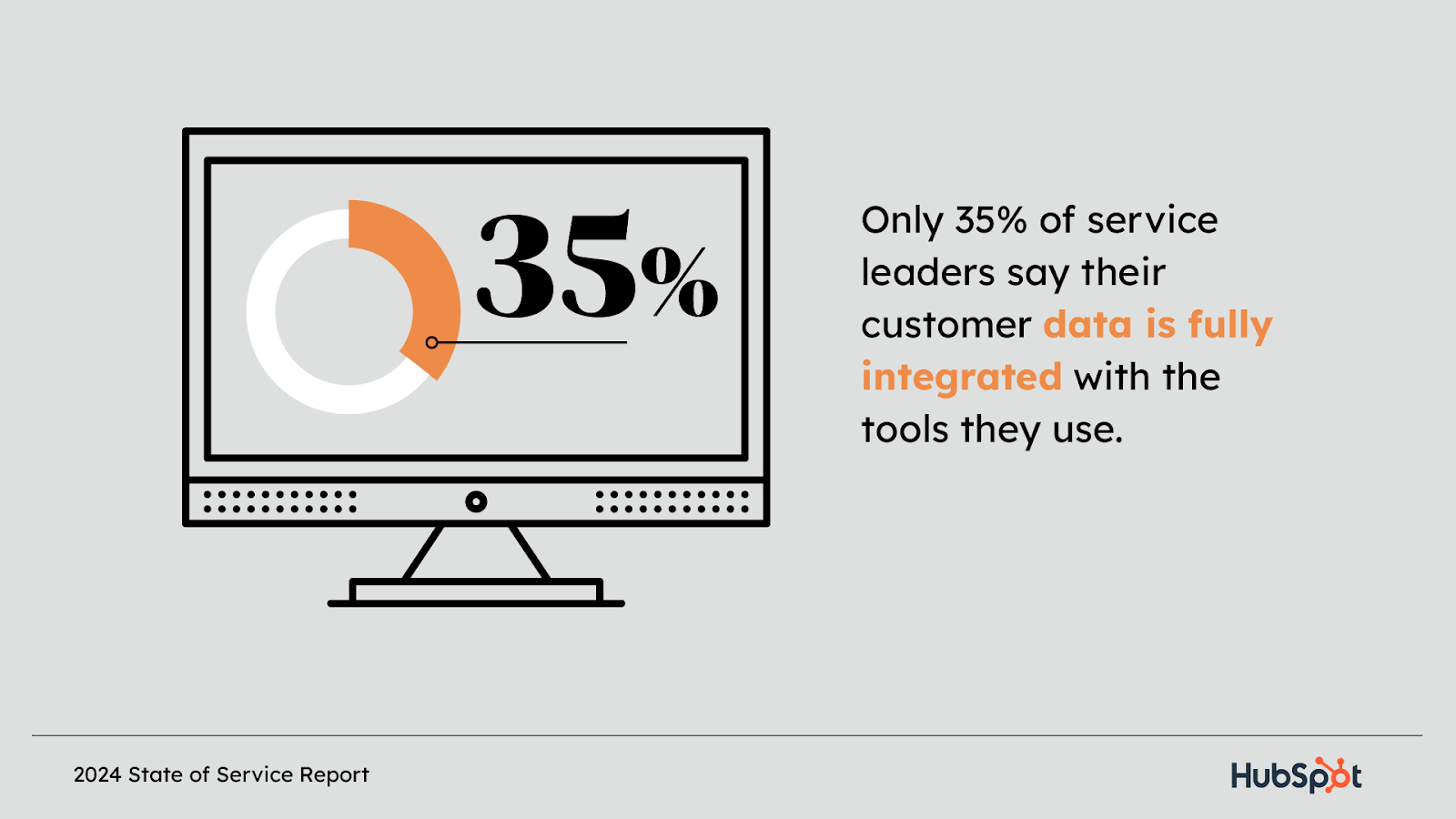Our new report reveals how modern CX teams use AI-assisted humans and unified data to scale support and drive retention.
For customer experience (CX) teams, traditional growth strategies relied on adding headcount: as customers increased, so did the need for more reps. But today, the CX industry—and how it drives growth—looks very different. Constrained budgets, decreasing headcount, and a surge in customer expectations mean CX teams are feeling the pressure to reinvent.
What hasn’t changed? CX leaders want to deliver exceptional customer experiences.
For our latest State of Service report, we spoke to over 1,000 global customer experience leaders about how they’re navigating this new landscape and the three focus areas that are helping CX leaders create meaningful customer experiences at scale. Let’s take a look.
Paul Weston, Senior Director of Product and GM of Service Hub at HubSpot, covers the key findings from the 2024 State of Service report.
Customers are demanding more of CX teams
Customer expectations of CX teams are the highest they’ve ever been:
- Seventy-five percent of CX leaders say ticket numbers are up
- Meanwhile, 78% of customers expect more personalization
- Eighty-two percent want their issues solved immediately
- And 78% prefer a self-service option when possible
Meeting existing customer expectations is important, since we know that acquiring a new customer can be up to 25 times more expensive than retaining your current customers.*

To help keep customers happy, CX leaders are exploring new ways to empower their teams at scale: enter AI.
Scaling CX with AI
Four out of five CX leaders agree: the future of customer experience is AI-powered. In fact, 65% of leaders say their teams already use AI across their CX operations. But while the majority of CX leaders agree that AI will be critical to their success, they don’t believe it’s AI-only. Across their core tasks, like resolving tickets and communicating with customers, CX leaders say the answer is AI-assisted humans.

At HubSpot, we couldn't agree more. Service Hub customers are using our AI tools like Chatbots and Reply Recommendations to supercharge their teams and scale their support.
The importance of unified data
To get the full value from their AI tools, CX teams need high-quality, unified data. But the reality is that only 35% of CX leaders say their data is fully integrated with the tools they use. And that’s a problem for more than just the effectiveness of their AI.

"I couldn't agree more that the adoption of AI-powered tools and unified data has been crucial for our CX teams. To date, we’ve been able to automate resolution of over a third of our tickets, and reduced resolution times by over 60%," shared Jennifer Cummings, Sr. Director of Customer Engagement at Kaplan. "With HubSpot, we have visibility into the customer journey, enabling us to quickly onboard internal support teams and give customers a great service experience."
Disparate data means CX teams are missing out on opportunities to deliver an experience customers expect—there’s a wealth of information CX teams can understand about customers based on their go-to-market interactions across marketing and sales. CX teams with unified data are a whopping 225% more likely to say their customers receive a personalized experience, and 48% more likely to say their service strategy worked.
Explore all the findings from HubSpot’s 2024 State of Service report here.
*Harvard Business Review
.png?width=610&height=406&name=Wordmark%20%2B%20Background%20-%20Option%2001%20%281%29.png)
.png?width=610&height=406&name=Wordmark%20%2B%20Background%20-%20Option%2001%20%281%29.png)